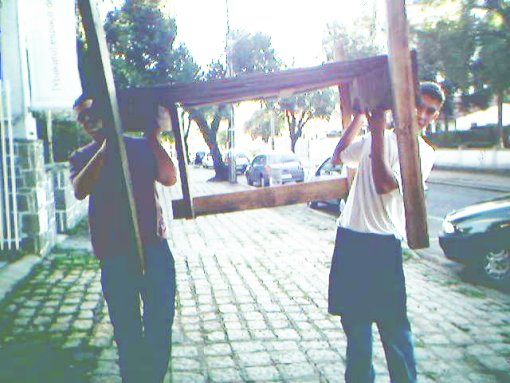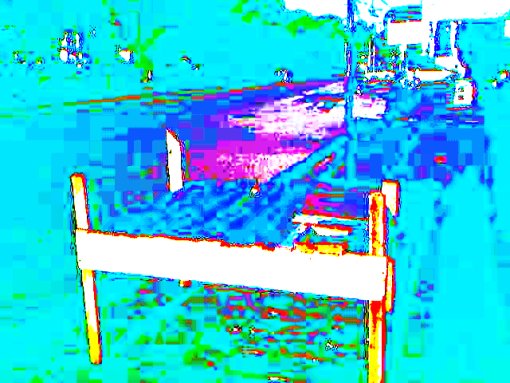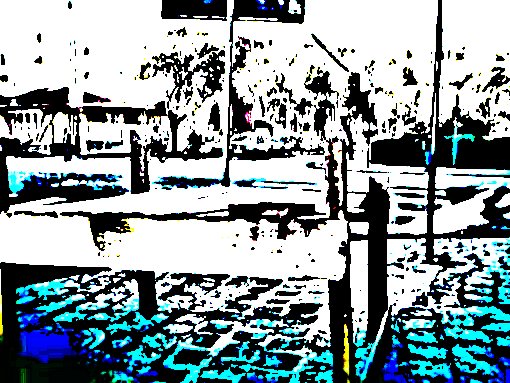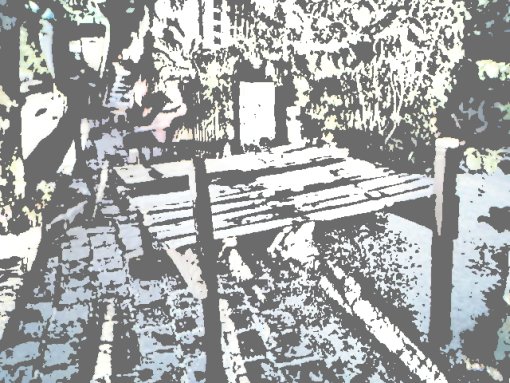www.errantbodies.org

Cooking Pure Data: Blenders and Electric-Appliances for Collective Modelling
Working with the formation of a group open to any kind of participation, mediated only by the intersection of social and aesthetic searches, whose actions develop according to the convergence of collective networks (mainly by Internet), the “Orquestra Organismo” group has a way of production where the process of “molding speeches” is taken from the beginning as the real “object” to be generated. Group work is the “product of actions modulating through time” where the intentions of interacting individuals (as well as their function as catalysts of relational dynamics) are the object “on scene”, operating as a live search for equilibrium between group performance and individual being (beyond any artistic or social analysis). Pieces are interactively built and sculpted through processes that foster a mutation of meanings produced through actions that seek to function as part of a space molded by institutionalizations like “music”, “theater”, “film”, “galleries”, “bar”, “home” or “streets”; while always reinforcing the lucid situation that stimulated human relationships than all those generated as “objects” or “signs”.
The purpose of “Cooking Pure Data” should be seen as a continuation of Orquestra Organismo and their most recent performances – “Desafiatlux” and “A justa Razao aqui Delira” – and has its genesis in the actions of “Surface Tension_Curitiba”. These ideas stem from recognizing that we live in an age of overloaded information and possibilities of connection over networks formed by shared speech that is beyond territorial and linguistics borders. On the other hand, the Cartesian and systematic organization of this DATA tends to be dissolved into the space where it takes form by institutionalized functions (from arts to engineering; from activism to social theory). Nevertheless, those flowing identities are touched by subjectivity before they lose strength – through this process of intervening within such functions and spaces they will produce contradictions even while acquiring an “institutional” meaning. Our effort is for all “DATA-processed-speeches” to be perceived as a chaotic dance of entities, sculpted into symbolic rituals, “cruelty theaters” and aesthetics of direct action, leading forms of practice and ethics to an immediate perception of human dimension. This is the ambition of making projects.
In “Cooking Pure Data” we work in the kitchen of the exhibition space, which will be connected to other participants through Internet anywhere in the planet. The kitchen functions to incubate the anthropological concept of the “Raw and Cooked” worked out by Lí¨vi-Strauss: the creation of ritual processes that marks the dialogic way in which “raw” DATA that at first is without “function” becomes able to assume (at the end of the meeting) various meanings, as long it helps to converge the intention of multiple “cooks”. The kitchen should be emphasized as a space where we always get together in rituals of “feeding” (and all our processes are about “feedback”). Using this meaning, we aim to build a metaphor of the kitchen as a space of alchemy where dialetics boils the collectivist intentions and the “starvation” (or gluttony) is the anxiety that brings us back to the human dimension.
Plans for staging events:
1. The installation should be built in the kitchen of the exhibition place, with drafts, drawings, annotations, personal audio/video recordings, mainly objects brought from “home”, included as participants, the organizers and visitors who wish to interact. This has to be done without turning the kitchen into a “gallery”, the focus rather is to collect material so as to generate “DATA cooking”. This procedure may transform the kitchen into a common space for the participants, for informal meetings that will facilitate bringing them to a “temporary autonomous zone” inside the space where data are “boiled”.
2. Simultaneously to the place of exhibition, we intend to articulate similar structures in various cities of Brazil: Curitiba, Belo Horizonte, Sao Paulo, Rio de Janeiro, Salvador, Campinas, Belem, Porto Alegre, Recife, Brasilia and Florianopolis, and possibly cities in other countries. This action will be scheduled over Internet, being sensitive to its process of articulation as an important part of the “data recipe” scope.
3. Deconstructing the perception of “home”, we will make music with electric appliances such as blenders, vacuum cleaners, fans, multiprocessors and others that should be painted as a canvas and covered with diagrams, annotations, poetry and impressions about the actions. The appliances should be traded between places to reside in different kitchens. These appliances will be controlled by participants remotely through a website.
4. Cooking “Rituals” will be scheduled at the same time, where participants prepare food as the action is recorded on video, sound media, drawings, and streamed through Internet, interacting with people doing whatever they want in the space, recombining feedbacks of data from other kitchens at the same time. This “feed-back” and mirroring of data will cause the sensation of simultaneous presence and the kitchens will become a place passing through geographic borders taking the repertoires as a common database for reality constructions. This will influence direct action and relationships through the network. The processes caused by the “kitchen” should also be registered and reprocessed in new rituals and future ideas.
5. Season as you like and put it in the stove.
6. We stimulate the rhythmic use of the kitchen, spoken words, musicalization of cooking acts. We ask for the use of different languages and accents as you cook this data. After the dinner, one should digest the data and expend the consequent energy through direct actions in the streets.
Glerm Soares – January 2006

“Na maior cratera
Tu mescles do mais puro e aprontes copos;
Caríssimos varões meu teto acolhe.”
O camarada obedeceu contente.
Ele, ante o lar, em cúpreo largo disco
Dorso depôs de ovelha e gorda cabra
E de um cevado os suculentos lombos:
Automedon segura, o herói perito
Em pessoa esposteja, enrosca e espeta;
O Menécio deiforme atiça o fogo:
Lânguida a flama, ao rúbido brasido
Sobre as lareiras os espetos vira,
De sal tempera-os sacro; todo assado
Põe da cozinha í mesa, e o pão ministra
Em lindos canistréis. Do ítaco em face
Toma a parede e as carnes trincha Aquiles;
O sacrifício incumbe ao companheiro,
Que ao fogo atira as divinais primícias.
Deitam mãos dos manjares os convivas.

Súbito sacrifica branca ovelha:
Esfolam-na, esquartejam-na, e a preceito
Assam de espeto no brasido as postas;
Em canistréis na mesa o pão reparte
Automedon, e Aquiles trincha as carnes.
às viandas se deitam; e saciados,
Príamo admira o talhe do Pelides
E a divina beleza, admira Aquiles
A facúndia e presença do Dardânio.

The transportation of the table, through the streets to its new location, brings to mind the procession of sacred objects enacted during religious festivals and other events, in which the collective labor of a community is performed in relation to the divine: as supplication to the gods, as offerings to a deity, as rituals of social identity. This table procession, through the streets of Curitiba, echoes, in a kind of poetic overlay of actions, with the fact the table itself is a collection of discarded wood found on the street, collected through another kind of ritual, that of artistic statements and belief. That the table finds a resting place at Beto Batata, itself a place of feasting, a place of tables and cooking, of music and social ritual, seems extremely
poignant.